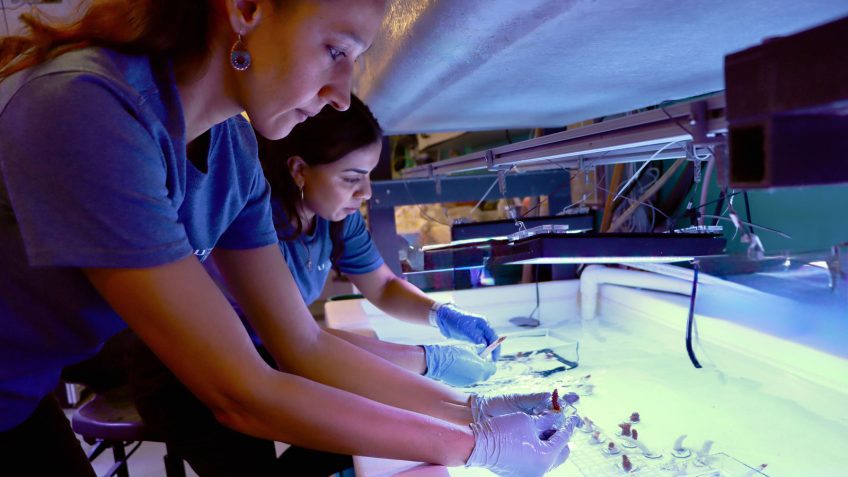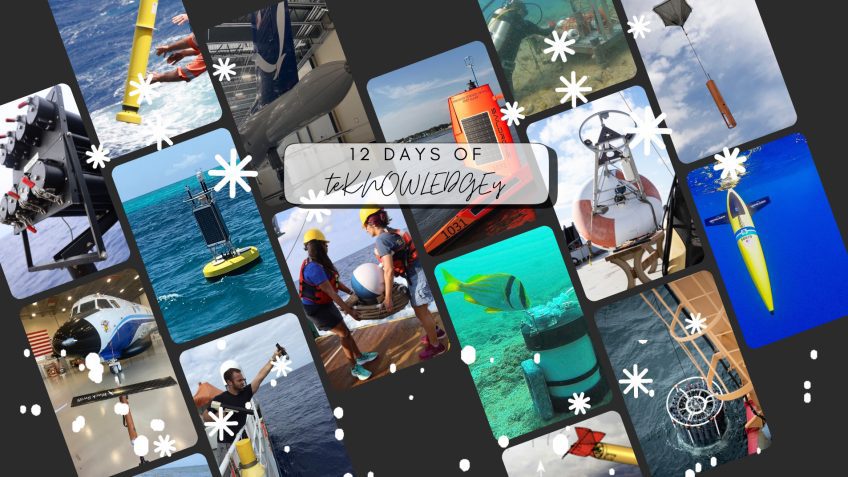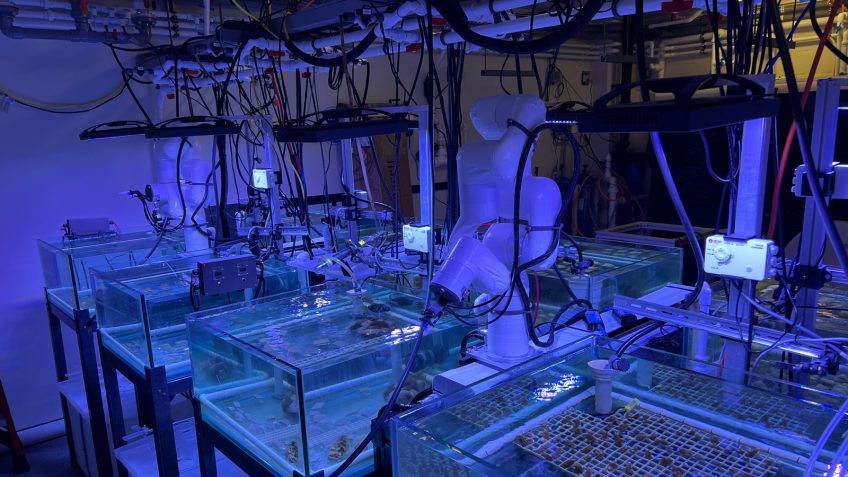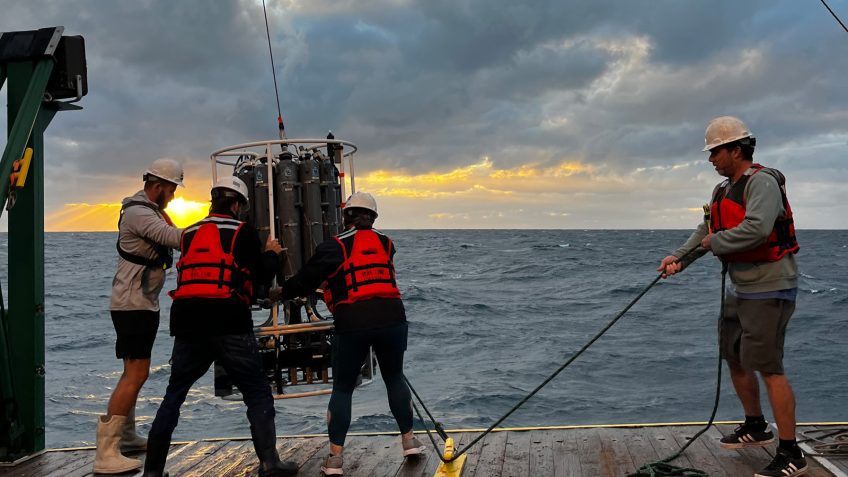In a new study, scientists at AOML and the University of Miami’s Cooperative Institute for Marine and Atmospheric Sciences (CIMAS) demonstrated how some genotypes of the reef-building coral Acropora cervicornis (Staghorn Coral), listed on the Endangered Species Act, proved resilient when exposed to high nutrient levels or disease, but not when the two stressors were […]
Read Full Article
Diver’s drop over the gunnel. Tanks, weights, divers, and a mesh bag full of tools all descend in emerald waters beneath grey skies. Off the vessel’s bow, a yellow beacon blinks with a red flashing light and a thin data cable stretching to the seafloor, all connected to a suite of sensors twenty feet below […]
Read Full Article
A new study by scientists at the Atlantic Oceanographic and Meteorological Laboratory (AOML) and the Cooperative Institute for Marine and Atmospheric Sciences (CIMAS) provides new insights for effective restoration of the crucial reef-building coral species Acropora palmata, or Elkhorn coral. Applying ‘Omics techniques to investigate how habitat and coral microbiomes influence ongoing restoration efforts, this […]
Read Full Article
Behind every research project at NOAA’s Atlantic Oceanographic and Meteorological Laboratory (AOML) are a suite of instruments. Whether descending to depths or weathering storms, these technologies are paramount to oceanic and atmospheric observations. Get to know 12 of these instruments with a new social media series: 12 Days of teKNOWLEDGEy! On the 1st day of […]
Read Full Article
Mission: Iconic Reefs Environmental Monitoring Monitoring Impacts of Changing Ocean Conditions on US Coral Reefs SCROLL TO LEARN MORE What We Do Monitoring Coral Reefs in Real-Time AOML Coral Program scientists are assessing the impacts of ocean acidification and rising sea surface temperatures on coral reef ecosystems within the Florida Keys National Marine Sanctuary in [...]
Read Full Article
The waves lap at the bow of the RV Cable while glimmers of Cheeca Rocks, a bustling inshore patch reef, ebb and flow into focus below the surface. For eleven consecutive weeks, the Coral Program at NOAA’s Atlantic Oceanographic and Meteorological Laboratory (AOML) laid anchor at this long-term monitoring site to deploy and maintain Benthic […]
Read Full Article
New study led by scientists at CIMAS, AOML and NMFS reveals impacts of suspended sediment from Port Miami on early life stages of a threatened Caribbean coral species.
Read Full Article
Blue lights fill the room. The faint smell of salt emanates throughout the space as wires and tubes intricately suspended over robotic arms move along custom-built tracks over four rows of tanks filled with seawater – and fragments of critically-endangered corals. In the Experimental Reef Lab, scientists at NOAA’s Atlantic Oceanographic and Meteorological Laboratory (AOML) and the Cooperative Institute for Marine and Atmospheric Studies (CIMAS) are investigating how crucial reef-building coral species are affected by the impacts of climate change using a suite of open-source robotic arms designed and built at AOML.
Read Full Article
A groundbreaking new study spanning more than a decade and hundreds of miles of the Florida Coral Reef demonstrates the key role benthic communities play in reducing the impacts of climate change on coral reef ecosystems, specifically Ocean Acidification.
Read Full Article
Happy Holidays to all! As we close out 2023, join us as we look back at some of our top research highlights this year! From responding to heat waves to setting records and launching new tech, our dedicated team continues to push the boundary in an effort to support NOAA’s mission to build a climate-ready […]
Read Full Article









